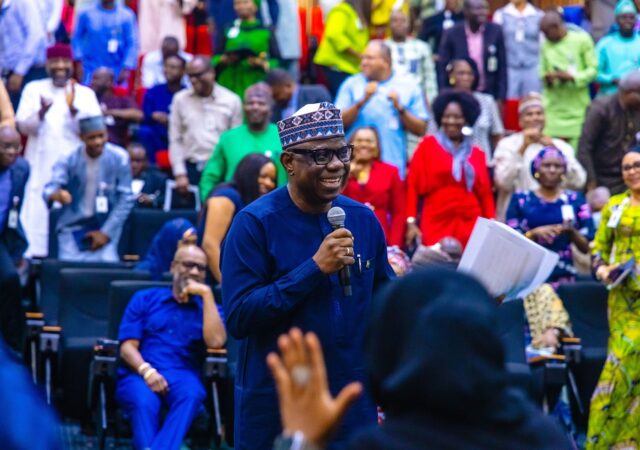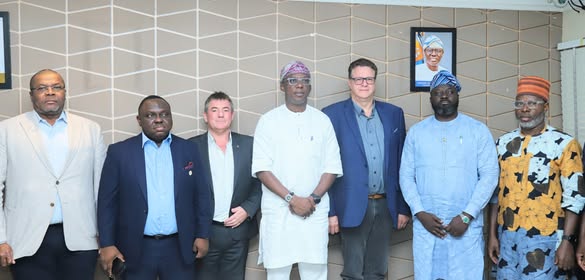In a powerful display of legislative resolve and forward-thinking leadership, Nigeria’s House of Representatives has placed renewable energy squarely at the center of national development efforts—backed by action, not just rhetoric.
At the opening of the First Legislative Conference and Expo on Renewable Energy held in Lagos on May 5, 2025, Speaker of the House, Rt. Hon. Abbas Tajudeen, called for urgent and united action to accelerate Nigeria’s transition to clean energy, while vowing to ensure legislative support towards enacting laws to back bolder clean energy initiatives.
“Renewable energy is no longer a fringe alternative—it is the backbone of global power development,” he said, referencing the global addition of 585 gigawatts of renewable capacity in 2024 alone, representing more than 92% of all new power sources that year.
The conference, organized by the House Committee on Renewable Energy in partnership with the United Nations Development Programme (UNDP), highlighted the pivotal role of legislation in shaping Nigeria’s energy future.
Tajudeen pointed to recent actions by the 10th National Assembly, including:
- The creation of a Standing Committee on Renewable Energy to steer national priorities;
- The passage of tax reform bills that eliminate VAT on renewable energy technologies and compressed natural gas;
- The integration of clean energy into the House Legislative Agenda, specifically through Strategic Objective 8.5, which focuses on private investment incentives, clean cooking energy, and emissions reduction.
These measures, he said, are key to unlocking economic growth, public health benefits, and environmental resilience.
Perhaps the most tangible evidence of progress is the massive rollout of clean energy solutions in rural communities. According to the Speaker, President Tinubu’s administration has secured $1 billion for rural solar expansion. Of this, $750 million has already facilitated:
- The deployment of 124 solar mini-grids;
- Over 25,000 solar home systems;
- Direct impact on more than 200,000 underserved Nigerians.
“This is not just policy; this is progress in action,” Tajudeen declared.
Looking beyond national borders, the Speaker emphasized Nigeria’s strategic position in continental energy reform. He highlighted Nigeria’s participation in the Mission 300 Initiative—a partnership with the World Bank and African Development Bank to provide electricity access to 300 million Africans by 2030.
He called on all stakeholders—government, private sector, and civil society—to match legislative commitment with investments and innovation.
“Let us not allow the momentum we have built to dissipate,” Tajudeen urged. “This is our moment to lead, innovate, and build a sustainable energy future for Africa.”
The Legislative Conference and Expo was designed to do more than raise awareness—it was crafted as a multi-stakeholder platform to drive real change through dialogue, partnerships, and policy alignment.
Attendees included state governors’ representatives, commissioners for environment, energy experts, and development partners—all united by a common goal: powering Nigeria’s clean energy future.
As Nigeria’s lawmakers step boldly into the renewable energy space, the message is clear—legislation, when matched with political will and investment, can change lives.
From rural homes lit by solar power to national policies that unlock green jobs and cleaner air, the country is showing that sustainable development is not a dream—it’s already underway.







Hi there! This post couldn’t be written any better! Reading through this post reminds me of my previous room mate! He always kept talking about this. I will forward this article to him. Pretty sure he will have a good read. Thank you for sharing!